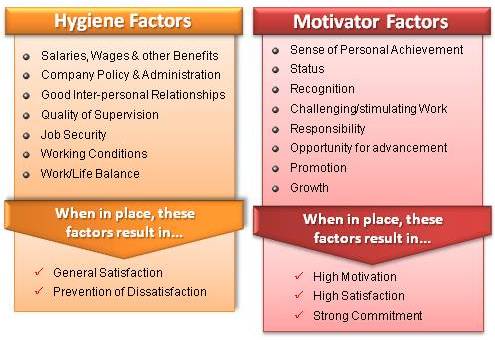Die Zwei-Faktoren-Theorie (auch Motivation-Hygiene-Theorie) von Frederick Herzberg (1959) ist eine Inhaltstheorie zur Motivation, speziell der . The two-factor theory states that there are certain factors in the workplace that cause job satisfaction, while a separate set of factors cause dissatisfaction. It was developed by psychologist Frederick Herzberg, who theorized that job .

Motivation-Hygiene Theory (sometimes known as Herzberg’s Two Factor Theory). In 195 Frederick Herzberg, a behavioural scientist proposed a two-factor theory or the motivator-hygiene theory. According to Herzberg, there are some job . Analyze Frederick Herzberg’s perspective on motivating employees through his Two-Factor Theory (also known as Motivation-Hygiene Theory) .

One of the main content theories of motivation, the Two-Factory Theory was proposed by American psychologist Frederick Herzberg. Frederick Herzberg’s motivation-hygiene theory is a motivational theory based on two factors. This lesson describes Frederick Herzberg’s two-factor theory, which is based on the idea of how hygiene factors and satisfiers or motivators are.
According to the Two Factor Theory of Frederick Herzberg people are influenced by two factors. Satisfaction and psychological growth was a factor of motivation .
